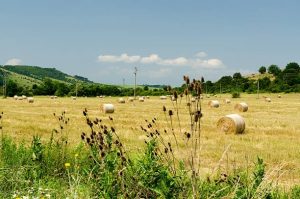You might have a choice between Sisal twine and Polypropylene www.balingtwine.com.au baling twine for baling hay. But what exactly is the difference between the two types? This article will discuss how each works and why you should use it for baling purposes. In addition, we’ll discuss how Sisal twine is used for crafts. But you should also be aware that Polypropylene baling twine is also available for your craft needs.
Sisal twine
 You may be wondering if sisal twine for baling is a good choice. Twine is a natural fibre that is completely biodegradable. While plastic twine is available in different colours, sisal twine is a great choice if you want to prevent pests from damaging your crop. In addition, you can buy sisal twine in different colours and get it in untreated form for better weather-resistant results.
You may be wondering if sisal twine for baling is a good choice. Twine is a natural fibre that is completely biodegradable. While plastic twine is available in different colours, sisal twine is a great choice if you want to prevent pests from damaging your crop. In addition, you can buy sisal twine in different colours and get it in untreated form for better weather-resistant results.
When choosing twine for baling, you have to look for its knot strength. A good twine should be strong enough to withstand the strain of baling but also resistant to insects and vermin. Also, you need to make sure the twine is biodegradable. Sisal twine for baling is the best choice for this purpose. Sisal twine is biodegradable, so you can feel safe using it outdoors.
Polypropylene baler twine
There are several polypropylene baler twine brands, but one, in particular, stands out above the rest. Polypropylene baling twine comes in both round and square versions. Each roll is 9,000 feet long and is compatible with most balers. Reyenvas, a Spanish company, manufactures the www.balingtwine.com.au baling twine. The company’s products are specially designed for balers and have been approved by world-leading baling machinery manufacturers.
It is available in a variety of colours, depending on the type of baling machine used. Colours vary, but black is the most durable and popular choice in climates with high solar radiation. PP twine also works well as a replacement for metal wire fences. This is why baler twine is an excellent choice for various agricultural applications. This durable twine can be used for both round and square bales, and it can be dyed, or UV protected.
Sisal twine used for hay bales
A variety of materials are used to bind hay bales. Sisal twine is one such material. It is made from a plant in the agave family, which grows in the arid regions of the American Southwest and Central America. This natural fibre is highly biodegradable and has a knot strength of 120 pounds per square foot. Sisal twine is also durable and comes in various colours and sizes. It is also made of extra long fibres and tensal and knot strength, the two most important factors for any bale.
Using sisal twine for hay bales can be economical and environmentally friendly. It comes in various colours and can be used for various purposes, including packaging and storing hay outdoors. If you are going to store your hay outdoors, it’s best to use U-V stabilised twine. Other alternatives include plastic and net wrap, but sisal twine is the best choice for larger bales.
Sisal twine is used for crafts
Sisal twine is an inexpensive alternative to rope for your craft projects. This twine is made from fibres of the Agave sisalana plant. These fibres are strong, aesthetically pleasing, and resistant to deterioration from the sun. Its flexibility makes it ideal for securing plants, while its biodegradable properties make it a great option for seafaring boats.
You can use sisal twine for everything from macrame to cooking if you’re a crafty type. With this durable twine, you can tie herbs to plant stakes and fashion supports for climbing plants. You can even tie up meat with sisal twine! You’ll be amazed at how many uses it can be! Here are just a few:
Biodegradability of sisal twine
Sisal twine is environmentally friendly, but is it biodegradable? The answer is yes. This twine is a renewable resource and is biodegradable, unlike synthetic www.balingtwine.com.au baling twine made of polypropylene. Its tensile strength is 130 pounds per square foot and is naturally biodegradable. Biodegradable twine is more environmentally sustainable and is a viable alternative to plastic twine.
Whether creating a bale for livestock or a hay bail, sisal twine has multiple benefits. It can mend fences, stabilize fences, and even reattach tractor parts. Its primary purpose is for baling, but its versatility goes far beyond this. Available in many colours and weights, it has many uses.